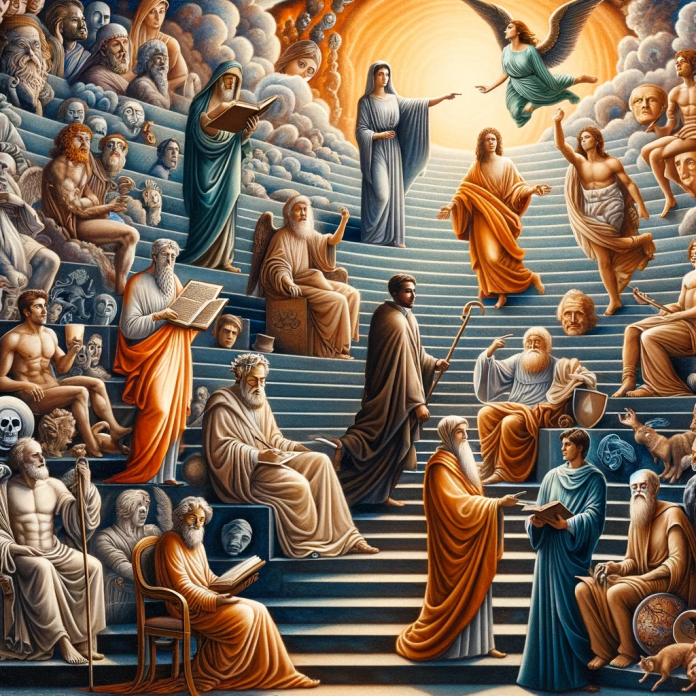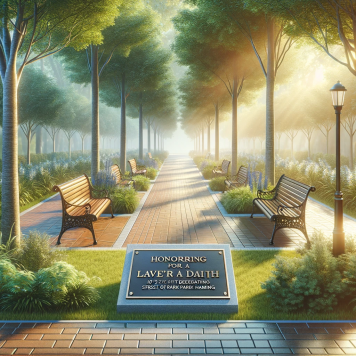The eulogy, a speech or written tribute praising the life and accomplishments of a person who has passed away, has a rich history that spans centuries and cultures. Its role in memorials is significant, providing comfort, closure, and a sense of celebration of the deceased's life. This exploration of the history of eulogies and their role in memorials will delve into the origins, evolution, and importance of this enduring tradition.
The Origins of Eulogies
The term 'eulogy' comes from the Greek word 'eulogia', meaning 'good word' or 'praise'. The practice of delivering eulogies dates back to ancient Greece, where it was customary to publicly honor the lives of individuals who had made significant contributions to society.
These early eulogies were not exclusive to funerals. They were also delivered during public events and celebrations, serving as a form of public recognition and appreciation. The focus was often on the individual's virtues, achievements, and contributions to society.
From Greece to Rome
The tradition of eulogizing the deceased was adopted by the Romans, who incorporated it into their funeral rites. In Roman society, eulogies were delivered by a family member or close friend of the deceased. The speech would recount the person's life, character, and accomplishments, providing a narrative that celebrated their life and legacy.
Over time, the practice of delivering eulogies became more widespread, extending beyond the boundaries of Greece and Rome to other cultures and societies.
The Evolution of Eulogies
As societies evolved, so did the practice of eulogizing the deceased. The Middle Ages saw a shift in the nature of eulogies, with a greater emphasis on religious themes and the afterlife.
During the Renaissance, eulogies began to take on a more personal tone, reflecting the individualistic spirit of the era. They became less about public recognition and more about personal reflection and remembrance.
Eulogies in the Modern Era
In the modern era, eulogies have become an integral part of funeral services. They serve as a way for loved ones to express their grief, share memories, and celebrate the life of the deceased.
Today, eulogies can be delivered by anyone close to the deceased, including family members, friends, or even professional eulogists. They can take many forms, from traditional speeches to poems, songs, or even multimedia presentations.
The Role of Eulogies in Memorials
Eulogies play a crucial role in memorials, serving multiple purposes. They provide a platform for expressing grief and sharing memories, helping those in mourning to process their loss.
Moreover, eulogies celebrate the life of the deceased, focusing on their unique qualities, achievements, and the impact they had on those around them. This celebration of life can provide comfort and a sense of closure to the bereaved.
Eulogies as a Form of Closure
One of the most important roles of a eulogy is to provide closure. By recounting the life of the deceased, a eulogy helps to bring their story to a close, providing a sense of finality that can aid in the grieving process.
Furthermore, eulogies allow for the expression of grief in a public setting, which can be therapeutic for those in mourning. They provide a space for the bereaved to acknowledge their loss, express their feelings, and receive support from others.
Eulogies as a Celebration of Life
While eulogies are often associated with sadness and loss, they are also a celebration of life. They highlight the positive aspects of the deceased's life, their accomplishments, and the impact they had on others.
This focus on celebration can bring comfort to the bereaved, reminding them of the joy and love the deceased brought into their lives. It can also inspire attendees to reflect on their own lives and the legacy they wish to leave behind.
In conclusion, the history of eulogies is a testament to the enduring human need to remember, honor, and celebrate the lives of those who have passed. From their origins in ancient Greece to their integral role in modern memorials, eulogies continue to provide comfort, closure, and a sense of celebration that transcends cultures and time.


-banner.png)





